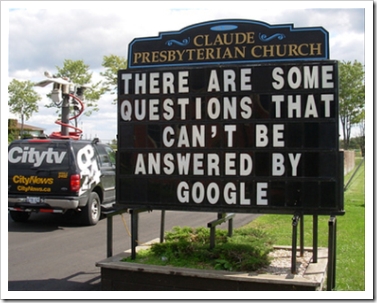We’ve learned recently of “honor killings” that take place in some cultures. It seems terrible – a defenseless woman is killed. CNN and other American news agencies report these as tragedies that we must somehow correct. I am not outraged by the incident. I am outraged by the gross arrogance of Americans to think that we know what is best for other cultures. I know nothing of their culture. I know nothing of why they might do this. I can’t imagine a good reason for why anyone would do this – but they do it. Maybe they are crazy. Or maybe they are religious freaks. Certainly, by western standards they are. But – it is their lives – it is their culture – and that is what they do.
In classrooms here we teach “you must learn to accept other cultures”, but yet, we don’t do it! We want to accept the tolerable parts of other cultures, but not accept the brutal parts. Well, we can’t have it both ways. Either we are tolerant and accepting, or we are not. We cannot pick and choose when to accept.
How arrogant are we Americans to think that these people want to be saved by us anyway? If they want to be saved, they must save themselves. We are running around the world pimping Democracy in pretty much the same way that crusaders did. We think our beliefs are better, and more fair. Maybe they are, and maybe they are not, but who are we to decide? Is pushing our politics really any different than pushing our religion? I don’t think so. We think its better, but its the people that decide, not us! Culture and politics is something you must want for yourself; it cannot be given.
I’ll forever condemn my chances of a political career now by saying – let the Honor Killings continue. There is nothing wrong with them unless the Iraqis decide there is something wrong with them.



